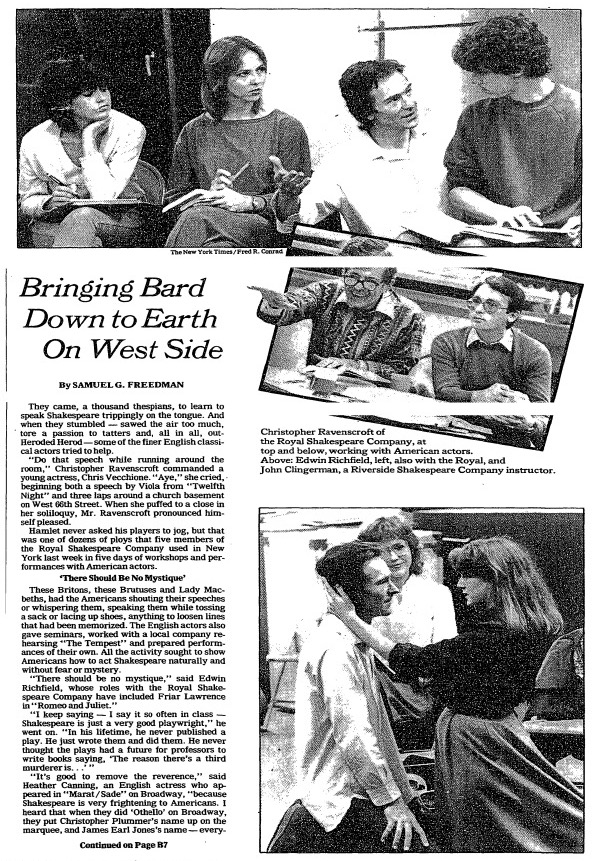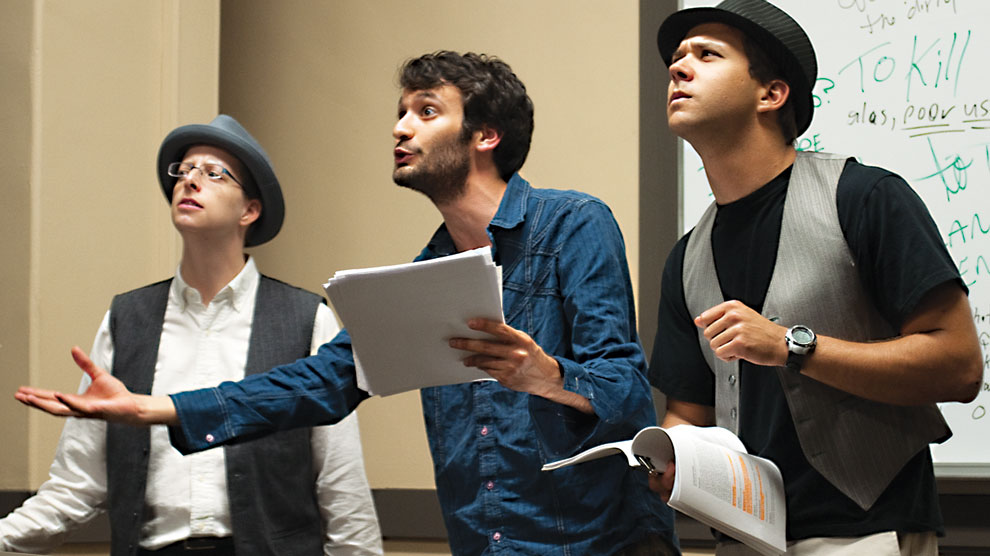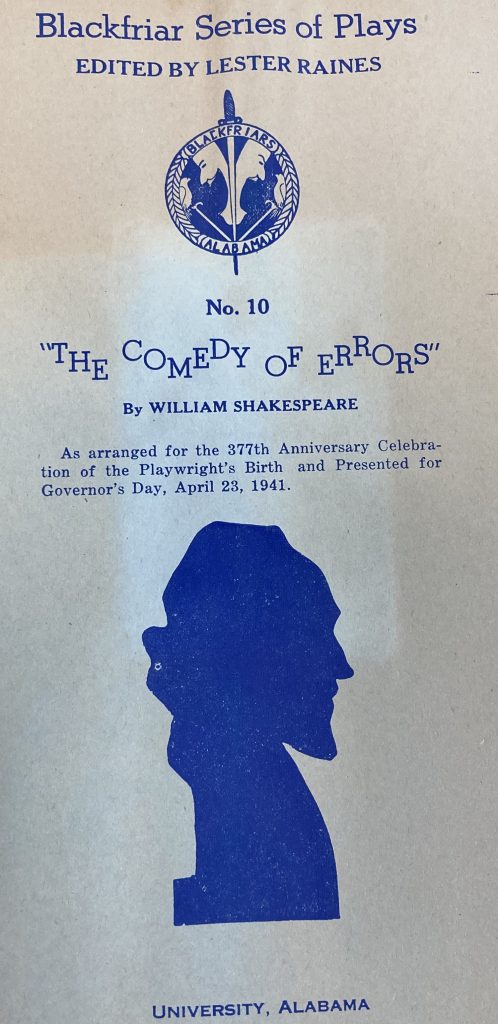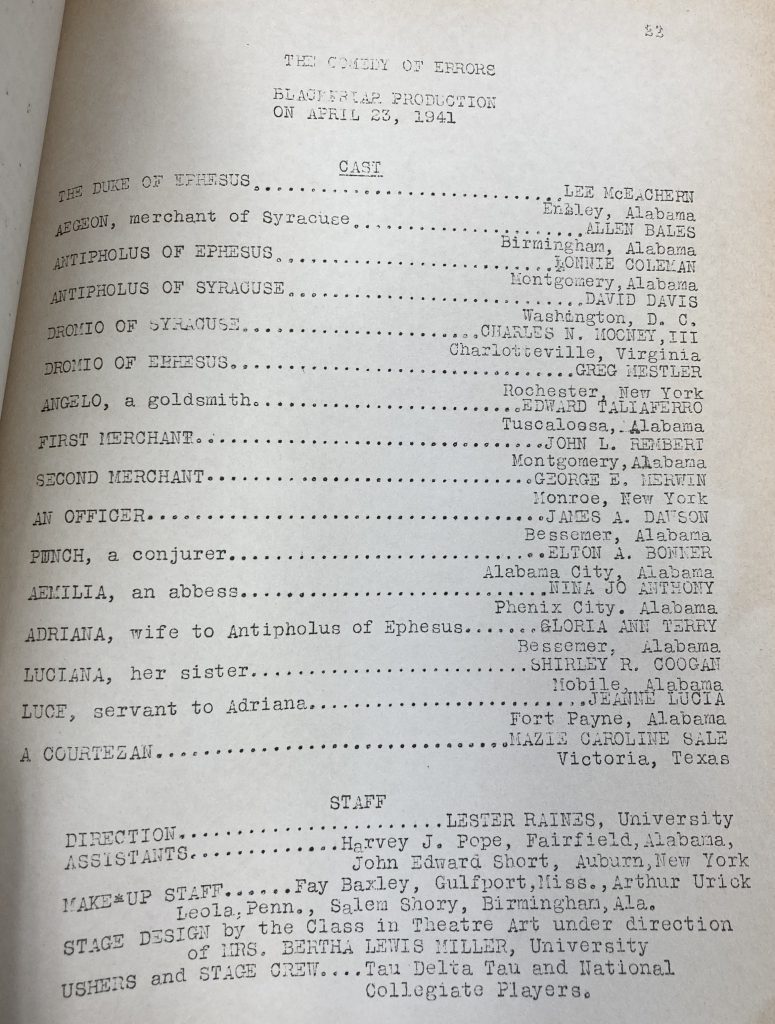In 1983, the Royal Shakespeare Company (RSC) came to New York City for the first time, hosting a week of events that later came to be known as the Shakespeare Project. During the day they played host to workshops, panel discussions, and seminars for the general public, and in the evenings staged readings of early modern plays in repertory with Shakespeare and his contemporaries. Inspired by this approach, a number of “projects” or staged reading series arose across the country, including the Shakespeare Project of Chicago, Back Room Shakespeare Project, Boston Shakespeare Project, and Portland Shakespeare Project, among others. Activated by similar energies, the Alabama Shakespeare Festival would take up residence at its dedicated venue in Montgomery in 1985.

Inspired by these precursors, at the center of ASP is a year-long staged reading series free and open to the public. With a central question, topic, technology, or character in mind, each season is curated under the advisement of undergraduates, graduate students, and faculty at UA.
ASP is not the first of its kind in the American southeast, but arises from a series of Shakespeare-oriented performance groups. Most recent of these was Improbable Fictions (IF), a staged reading series which ran from 2007 to 2020. Ignited by graduate students in the Hudson Strode Program for Renaissance Studies, IF picked up where a previous group had left off.

The long-running campus company, the Blackfriars Players, was organized in 1907 by noted Shakespeare scholar and elocutionist Frederick D. Losey during his time as faculty at the University of Alabama. The group’s plays were edited and directed by Lester Raines from 1937 to 1942, and some were published as an informal series. This included a production of The Comedy of Errors, performed 23 April 1941 as part of Shakespeare’s birthday celebrations. Unable to join the effort when the U.S. entered WWII later that year, professor and writer Hudson Strode would take over the company. Having won the 1929 Samuel French Prize for his play, “The End of the Dance,” Strode likely performed with the company long before leading it, and worked alongside other notable Alabama actors, including Allen Bales, for whom one of the university’s venues is named.

Today, ASP continues the tradition of staging readings of plays and other events related to Shakespeare and his contemporaries, testing current thinking in early modern performance and driven by the commitments of the graduate students in the Strode Program in Renaissance Studies.
We hope you’ll join us on this journey!
